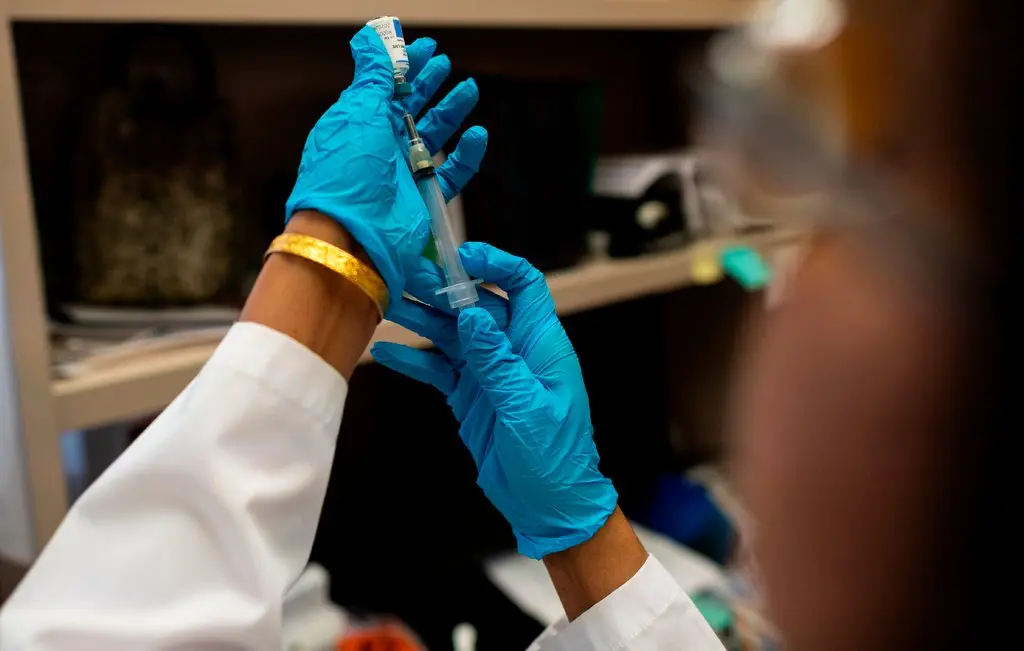Robert F. Kennedy Jr., a prominent U.S. health official known for his skepticism of vaccines, has changed his stance and publicly supported the measles vaccine amid a deadly outbreak in Texas. In a recent opinion piece published on Fox News, Kennedy expressed deep concern over the rising cases of measles, despite previously downplaying the severity of such outbreaks. This shift comes as health authorities confirm the first measles-related death in the U.S. in over a decade, highlighting the urgent need for vaccination.
The Texas Measles Outbreak
The measles outbreak in Texas has sparked widespread concern, particularly after the recent death of a school-aged child in northwest Texas. Health officials confirmed that the child, who had not been vaccinated, passed away after contracting the disease. As of early March, 146 cases had been reported in the state, with the majority of infections occurring in a Mennonite community. These outbreaks underscore the importance of vaccination in preventing the spread of this contagious disease.
The Texas Department of State Health Services has been closely monitoring the situation, working with local health agencies to control the spread. The majority of the cases have been identified in the area surrounding the Mennonite community, which has a history of vaccine hesitancy. This group, part of a Christian sect that originated in the 16th-century Reformation, has long been opposed to certain medical interventions, including vaccines.
RFK Jr.’s Change of Heart
In his Fox News article, Kennedy acknowledged the danger posed by measles, urging parents to vaccinate their children. “Vaccines not only protect individual children from measles, but they also contribute to community immunity, protecting those who cannot be vaccinated due to medical reasons,” Kennedy wrote. While he maintained that the decision to vaccinate should remain a personal one, his public support for the measles jab marks a significant departure from his previous stance.
Kennedy, who has previously promoted discredited research linking vaccines to autism, faced backlash for his controversial views. However, his recognition of the severity of the measles outbreak signals a shift toward more mainstream public health positions.
Historical Context
Kennedy’s recent comments reflect a broader understanding of the importance of vaccines in preventing deadly diseases. Before the introduction of the MMR (measles, mumps, rubella) vaccine, measles was a common and dangerous disease in the U.S. According to U.S. Secretary of Health and Human Services, Xavier Becerra, “virtually every child” in the U.S. contracted measles before the vaccine’s introduction. From 1953 to 1962, there were over 530,000 confirmed cases of measles annually, resulting in an average of 440 deaths each year.
In the years following the introduction of the MMR vaccine, measles cases in the U.S. plummeted. However, the recent outbreak in Texas has reminded the public of the ongoing risks posed by vaccine-preventable diseases. As of February 2025, health authorities reported the first measles death in the U.S. in over a decade.
The Importance of Vaccination
Measles is a highly contagious viral infection that can lead to serious complications, especially for those who are not vaccinated. According to the Centers for Disease Control and Prevention (CDC), approximately one in five unvaccinated individuals who contract measles will require hospitalization. Among children, measles can lead to pneumonia, with one in every 20 affected children suffering from this potentially life-threatening condition.
The CDC also notes that measles can be especially dangerous for infants too young to receive the vaccine, as well as for individuals with weakened immune systems. Vaccination is not only a personal health decision but also a crucial measure to protect vulnerable populations who cannot be vaccinated for medical reasons.
Public Health Officials Respond
Health experts have consistently emphasized the critical role of vaccines in maintaining herd immunity. Dr. John Smith, a leading epidemiologist at the CDC, stated, “The best way to protect communities from the spread of diseases like measles is through widespread vaccination. This outbreak in Texas is a clear reminder of the consequences of under-vaccination.”
Health authorities are urging parents to get their children vaccinated, especially in light of the ongoing outbreak in Texas. Local health officials are working with religious communities, such as the Mennonites, to address vaccine hesitancy and ensure that children are protected from measles and other preventable diseases.
The Growing Threat of Vaccine Hesitancy
Despite the proven safety and effectiveness of vaccines, vaccine hesitancy remains a challenge in certain communities. As seen in Texas, religious and cultural beliefs can influence decisions about vaccination. This has led to localized outbreaks of diseases that were previously under control. Public health campaigns aimed at educating communities about the safety and importance of vaccines are critical in combating these trends.
Experts warn that without increased vaccination rates, the U.S. could face more frequent outbreaks of vaccine-preventable diseases, putting vulnerable populations at risk. The recent support for the measles vaccine by figures like RFK Jr. may help bridge the gap between hesitant groups and the broader public health message.
The ongoing measles outbreak in Texas serves as a stark reminder of the importance of vaccination in protecting public health. RFK Jr.’s recent endorsement of the measles vaccine highlights the growing recognition of the risks posed by preventable diseases. As health officials continue to combat vaccine misinformation and encourage widespread vaccination, it is crucial for communities to prioritize public health and protect vulnerable individuals from the dangers of measles and other infectious diseases.
For more information on public health initiatives and vaccine safety, visit Issue N Fact.

